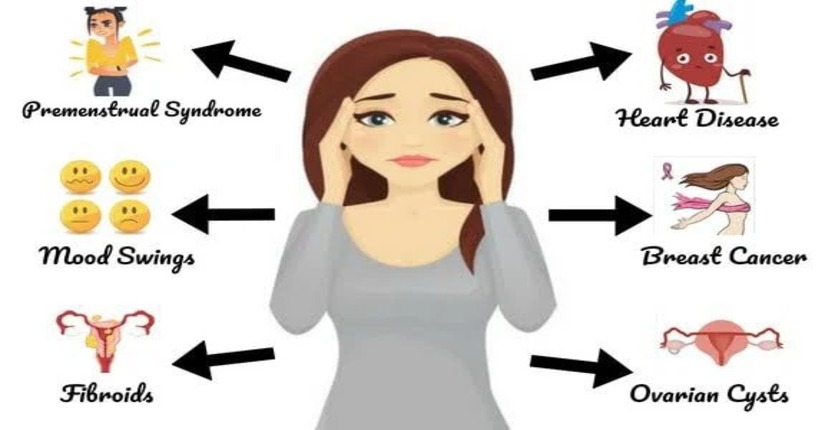Hormonal Imbalances: Causes, Symptoms & Treatment Explained
Hormonal imbalances can affect everyone, regardless of age or gender. They occur when there is too much or too little of a hormone in the bloodstream, leading to a variety of symptoms. While hormones play a vital role in regulating many bodily functions, an imbalance can disrupt normal physiological processes. Understanding hormonal imbalances is crucial for managing health effectively and restoring balance.
What Are Hormonal Imbalances?
Hormones are chemical messengers produced by glands in the endocrine system. They regulate key bodily functions such as metabolism, growth, mood, and reproductive processes. However, when the body produces too much or too little of a hormone, it can result in a hormonal imbalance.
Some of the major glands involved in hormone production include the thyroid, adrenal glands, pancreas, and reproductive organs. The most common hormonal imbalances involve estrogen, progesterone, testosterone, thyroid hormones, and insulin. When these hormones are out of balance, a range of health issues can arise.
Causes of Hormonal Imbalances
Several factors can contribute to hormonal imbalances. These include:
- Age: As people age, hormone levels naturally fluctuate. For instance, women often experience hormonal changes during menopause, which can cause a drop in estrogen levels. Similarly, men may experience lower testosterone levels as they age.
- Stress: Chronic stress triggers the release of cortisol, a stress hormone produced by the adrenal glands. Prolonged stress can lead to elevated cortisol levels, disrupting the balance of other hormones.
- Poor Diet: A diet high in processed foods, sugars, and unhealthy fats can contribute to hormone imbalances. Nutrient deficiencies, particularly in vitamins and minerals, can also hinder hormone production and function.
- Medical Conditions: Conditions such as polycystic ovary syndrome (PCOS), hypothyroidism, hyperthyroidism, and diabetes can result in hormonal imbalances. These conditions can interfere with hormone production or regulation.
- Environmental Toxins: Exposure to chemicals, pesticides, and endocrine disruptors found in plastics, cosmetics, and household products can interfere with hormone function, leading to imbalances.
Symptoms of Hormonal Imbalances
Hormonal imbalances can manifest through a wide range of symptoms. The severity and type of symptoms depend on the specific hormone involved. Common signs of hormonal imbalances include:
- Irregular Periods: For women, irregular or missed periods can be a sign of a hormonal imbalance, particularly if estrogen and progesterone levels are off.
- Weight Gain or Loss: Unexplained weight gain or loss can occur due to imbalances in hormones like thyroid hormones, insulin, and cortisol.
- Fatigue: Feeling constantly tired or fatigued, despite adequate rest, could indicate low thyroid hormone levels or an imbalance in cortisol.
- Mood Swings and Anxiety: Hormonal changes can cause mood swings, irritability, and increased anxiety, often related to fluctuating estrogen or progesterone levels.
- Acne and Hair Loss: Changes in hormone levels, particularly testosterone, can lead to acne, excessive hair growth, or thinning hair.
- Hot Flashes and Night Sweats: Common during menopause, hot flashes and night sweats are caused by hormonal fluctuations in estrogen levels.
- Infertility: Hormonal imbalances can impact ovulation and sperm production, leading to difficulty conceiving.
Diagnosing Hormonal Imbalances
If you suspect you have a hormonal imbalance, it’s important to consult with a healthcare provider. A doctor will review your medical history and symptoms before recommending lab tests to measure hormone levels. Blood tests, saliva tests, and urine tests can help determine which hormones are out of balance.
Treatment for Hormonal Imbalances
Treating hormonal imbalances often involves addressing the underlying cause. Common treatment options include:
- Lifestyle Changes: A healthy diet rich in whole foods, vitamins, and minerals can support hormone production. Reducing stress through practices like meditation, exercise, and deep breathing can help regulate cortisol levels.
- Medications: Hormone replacement therapy (HRT) can be used to restore hormones to normal levels, especially in cases of menopause or thyroid disorders. Insulin therapy may be prescribed for those with diabetes or insulin resistance.
- Natural Remedies: Herbal supplements, such as maca root, ashwagandha, and evening primrose oil, are thought to support hormone balance, but it’s important to consult a healthcare provider before using them.
- Surgery: In some cases, surgery may be necessary to remove tumors or cysts affecting hormone production, such as in the case of polycystic ovary syndrome (PCOS) or thyroid disorders.
Preventing Hormonal Imbalances
While some causes of hormonal imbalances are beyond our control, there are several proactive steps you can take to maintain hormonal health:
- Maintain a balanced diet rich in fruits, vegetables, healthy fats, and lean proteins.
- Stay active with regular physical activity to help balance insulin and cortisol levels.
- Prioritize sleep to support overall hormone regulation.
- Minimize exposure to toxins by using natural products and avoiding chemicals that disrupt hormone function.
Conclusion
Understanding hormonal imbalances is key to managing health and improving quality of life. By recognizing the symptoms and causes of hormonal imbalances, individuals can seek appropriate treatments and make lifestyle adjustments to restore balance. With proper care, many people can successfully manage hormonal imbalances and enjoy better health and well-being.


0 Comment